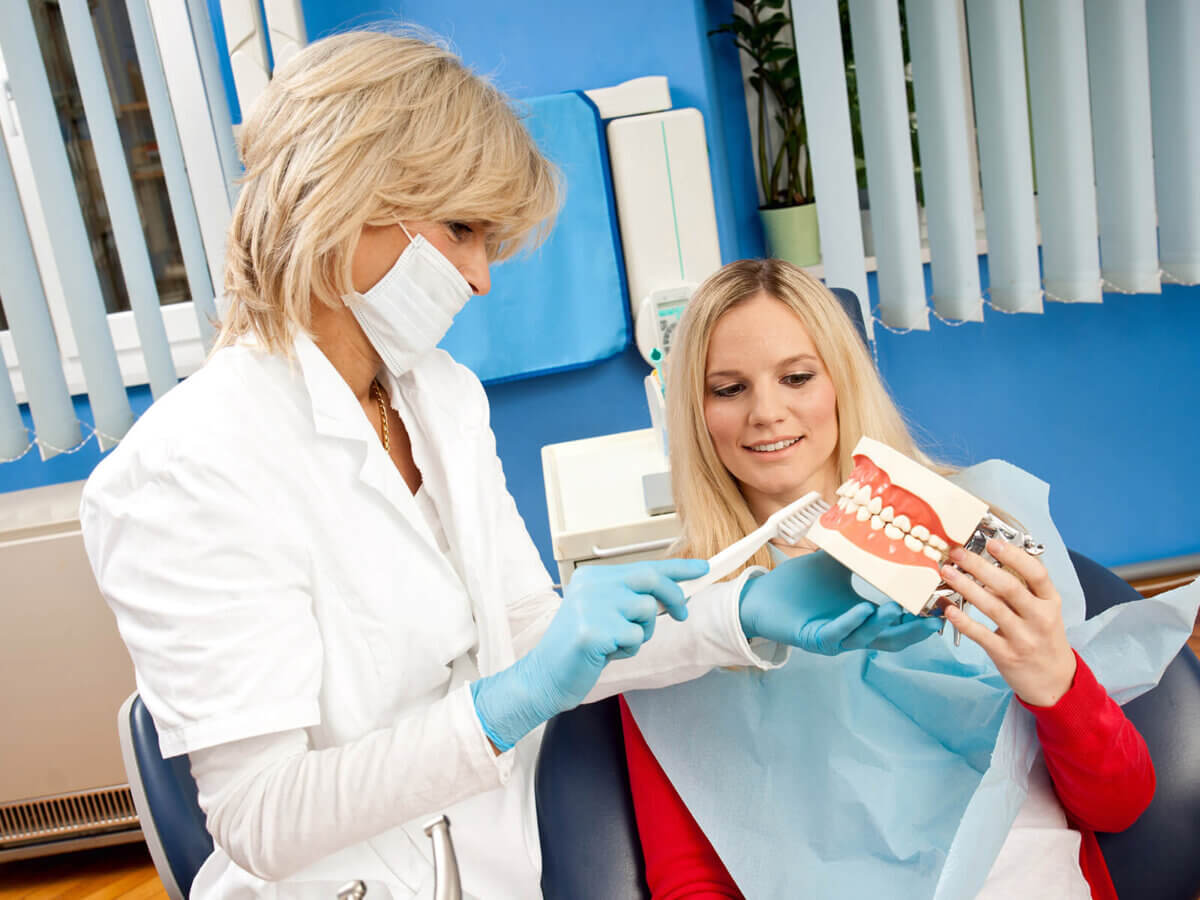Blog
Dental hygiene tips for healthy teeth & gums

Maintaining Oral Health After Dental Implant Surgery
Dental implant surgery is a transformative procedure that restores your smile, oral function, and confidence. To ensure the long-term success of dental implants, it is crucial to prioritize post-implant care and maintain optimal oral health. This comprehensive guide explores critical aspects of post-implant care, including oral hygiene practices, dietary considerations, and the importance of follow-up appointments.
Maintaining Oral Health After Dental Implant Surgery
1. Gentle Oral Hygiene Practices:
a. Mindful Brushing: In the initial days following dental implant surgery, practice gentle brushing around the implant site. Use a soft-bristled toothbrush to avoid irritation, and be thorough but gentle to maintain oral hygiene without causing trauma to the surgical area.
b. Non-Abrasive Toothpaste: Choose a non-abrasive toothpaste to prevent damage to the implant or surrounding tissues. Consult with your dentist to recommend a toothpaste suitable for post-implant care.
c. Flossing with Care: Flossing is essential for cleaning between teeth and around the implant. Use a gentle, unwaxed dental floss or an interdental brush to clean areas around the implant without causing harm.
d. Antimicrobial Rinses: Incorporate antimicrobial or prescribed mouth rinses into your oral hygiene routine. These rinses help reduce the risk of infection and maintain a clean oral environment.
2. Dietary Considerations:
a. Soft Diet Initially: In the days immediately following dental implant surgery, stick to a soft diet to avoid placing excessive pressure on the implant site. Opt for foods like yogurt, mashed potatoes, soups, and smoothies that are easy to chew and won’t strain the surgical area.
b. Avoid Hard or Sticky Foods: Steer clear of hard or sticky foods that could damage the surgical site or implant. Refrain from chewing on ice, hard candies, or foods that may jeopardize healing.
c. Adequate Nutrient Intake: Ensure a well-balanced diet rich in vitamins and minerals to support overall healing. Adequate nutrition is vital for the body’s ability to recover and promote optimal oral health.
3. Follow-Up Appointments:
a. Scheduled Check-ups: Attend all scheduled follow-up appointments with your dentist or oral surgeon. These appointments are crucial for monitoring the healing process, addressing any concerns, and ensuring the stability of the dental implant.
b. Diagnostic Imaging: Periodic X-rays or other diagnostic imaging may be necessary to assess the integration of the implant with the surrounding bone. These imaging studies provide valuable insights into the success of the implant and any potential issues that may need attention.
c. Professional Cleanings: Continue to attend regular professional dental cleanings. Dental hygienists can clean around the implant site more thoroughly and guide on maintaining optimal oral health.
4. Oral Health Maintenance Tips:
a. Quit Smoking: Smoking can compromise the success of dental implants by hindering the healing process. If you smoke, consider quitting to support the longevity of your dental implants and overall oral health.
b. Limit Alcohol Consumption: Excessive alcohol consumption can negatively impact healing and oral health. Moderation in alcohol intake supports overall health and aids in the successful recovery of dental implants.
c. Address Bruxism: If you have a habit of teeth grinding (bruxism), discuss this with your dentist. Bruxism can exert undue pressure on dental implants and may require a nightguard to protect the implant during sleep.
d. Stay Hydrated: Adequate hydration is essential for overall health and can contribute to optimal healing. Drink plenty of water to maintain oral and systemic well-being.
5. Promptly Address Concerns:
a. Pain or Discomfort: While some discomfort is normal after dental implant surgery, persistent or severe pain should be promptly addressed. Contact your dentist if you experience prolonged or intense pain to ensure appropriate intervention.
b. Swelling or Redness: Swelling and redness are common in the initial days after surgery. However, if these symptoms persist or worsen, you must consult your dentist to rule out any signs of infection or complications.
c. Changes in Bite or Implant Stability: Any sudden changes in your bite or instability around the implant should be reported to your dentist immediately. Early detection and intervention are crucial to addressing potential issues and preserving the success of the dental implant.
Conclusion:
Maintaining oral health after dental implant surgery is collaborative between the patient and the dental care team. By adhering to gentle oral hygiene practices, making thoughtful dietary choices, attending follow-up appointments, and promptly addressing any concerns, individuals can contribute to the long-term success of their dental implants. A commitment to post-implant care not only ensures the health and stability of the implant but also allows individuals to enjoy the benefits of a restored and functional smile for years to come.
